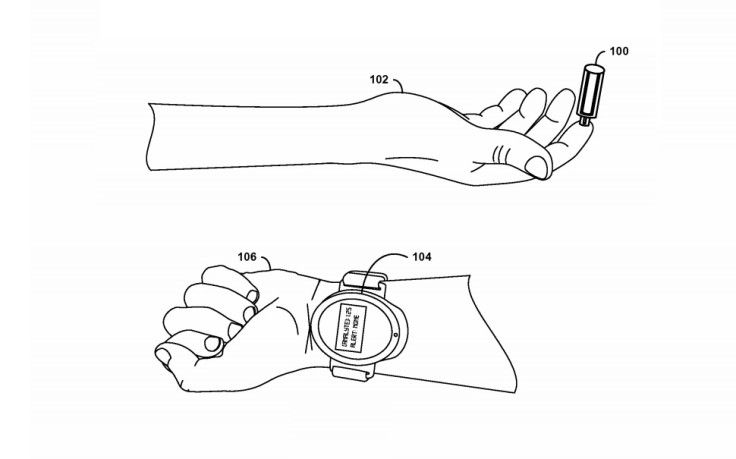Google patents 'needle-free' device to take blood and deliver medicine through smartwatch

Google has filed a patent for a "needle-free blood draw" system that could be used in next-generation smartwatches and wearables to monitor the health of wearers. The technology described in the patent, published on 3 December by the US Patent and Trademark Office, could also be developed to discretely deliver drugs and medicine.
The patent application describes a system that uses a small barrel placed against the skin to blast a microparticle into the skin. Negative pressure in the barrel then draws out a small amount of blood from the pierced skin, which can then be analysed by sensors in the device. The engineers behind the device have claimed that it could be used in a hand-held or wearable device by people with diabetes to monitor their glucose levels. It could also be developed for other applications, such as delivering medicine to the wearer.
"While the hand-portable hyperspeed micro-particle accelerator device has been described by way of example embodiment as a pneumatic accelerator, other embodiments of micro-particle accelerator mechanism are possible," Google said in the application. "For example, hyperspeed acceleration of a micro-particle could be achieve with an electromagnetic railgun, for example. Such an alternative embodiment could also be used for needle-free blood draw (or sub-dermal delivery of medicine or therapeutic monitoring substances)."
It is too early to say whether the patent will be developed into a commercial product, though Google has shown an increasing interest in medical technology in recent months. In October, Google announced that its Life Sciences division would operate as its own entity under the parent company, Alphabet. Current projects include smart contact lenses that can monitor glucose levels and a spoon that can be used by people with tremors.
A Google representative said: "We hold patents on a variety of ideas – some of those ideas later mature into real products or services, some don't. Prospective product announcements should not necessarily be inferred from our patents."
© Copyright IBTimes 2025. All rights reserved.






















